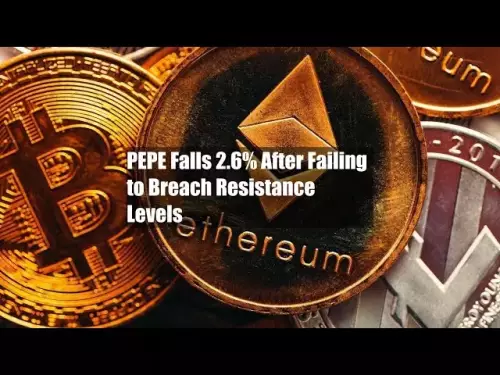-
 bitcoin
bitcoin $122090.672462 USD
1.59% -
 ethereum
ethereum $4493.758974 USD
0.56% -
 xrp
xrp $3.033145 USD
0.65% -
 tether
tether $1.000629 USD
0.00% -
 bnb
bnb $1169.854250 USD
7.07% -
 solana
solana $230.954786 USD
-0.19% -
 usd-coin
usd-coin $0.999785 USD
0.00% -
 dogecoin
dogecoin $0.256108 USD
-1.12% -
 tron
tron $0.342333 USD
-0.12% -
 cardano
cardano $0.859632 USD
-0.10% -
 hyperliquid
hyperliquid $48.932146 USD
-2.25% -
 chainlink
chainlink $22.345466 USD
-1.29% -
 ethena-usde
ethena-usde $1.000217 USD
-0.03% -
 avalanche
avalanche $31.203456 USD
1.93% -
 sui
sui $3.579145 USD
1.05%
How to find my Bitcoin address in Trust Wallet?
Your Bitcoin address in Trust Wallet is safe to share for receiving funds, but never disclose your private key or recovery phrase to prevent irreversible losses.
Oct 04, 2025 at 07:01 pm
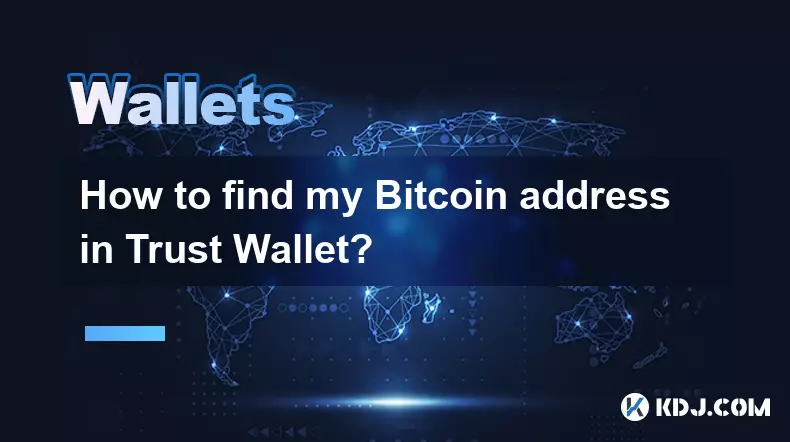
Understanding Your Bitcoin Address in Trust Wallet
1. Open the Trust Wallet application on your mobile device and ensure you are logged into your account. The app supports multiple cryptocurrencies, so it’s important to navigate specifically to the Bitcoin section to locate your BTC address.
2. Tap on “Bitcoin” from the list of assets displayed on your wallet dashboard. If Bitcoin isn’t immediately visible, use the search function to find it quickly. Once selected, you’ll be taken to your Bitcoin wallet interface.
3. On the Bitcoin wallet screen, you will see your current BTC balance and a prominent button labeled “Receive.” Tap this button to view your unique Bitcoin address.
4. Your Bitcoin address will appear as a long string of alphanumeric characters starting with “bc1”, “1”, or “3”. Alongside the address, a QR code is also generated, which represents the same destination for receiving funds.
5. To copy the address, tap the “Copy” icon next to the character string. This allows you to paste it wherever needed, such as when requesting payments or setting up deposits on exchanges.
Security Measures When Sharing Your Bitcoin Address
1. Your Bitcoin address is safe to share publicly when you want someone to send you BTC. It functions similarly to an email address—used only to receive funds and does not grant access to your wallet.
2. Never share your recovery phrase, private key, or any authentication details. These elements provide full control over your wallet and should remain confidential at all times.
3. Double-check the address before initiating transactions. While copying reduces errors, manually verifying the first and last few characters can prevent potential fraud or misdirected transfers.
4. Consider generating a new address for significant transactions or long-term storage. Although reusing addresses is technically possible, using fresh ones enhances privacy by reducing traceability across transactions.
5. Avoid pasting your address on public forums or unsecured websites. Even though the address itself doesn't compromise security, tracking services may associate it with your identity if exposed in identifiable contexts.
Common Issues and Troubleshooting Tips
1. If the Bitcoin option does not appear in your asset list, tap the “+” icon to browse available coins and enable Bitcoin. Make sure you select the correct blockchain—Bitcoin (BTC), not Bitcoin Cash or another fork.
2. In rare cases, the app may not load the receive screen properly. Close the app completely and relaunch it. Ensure your internet connection is stable during this process.
3. Some users report discrepancies when comparing copied addresses with those shown in other wallets. Remember that Trust Wallet uses native SegWit (bech32) addresses by default, which start with “bc1”. Exchanges sometimes prefer legacy formats, but most modern platforms support bc1.
4. If scanning the QR code fails, adjust lighting conditions or try zooming in. Alternatively, manually enter the address on the sending platform to bypass scanning issues.
5. Always confirm that incoming transactions match your expectations. Monitor the transaction ID (TXID) through a blockchain explorer to verify authenticity and completion status.
Never expose your private keys or seed phrase under any circumstances. Your Bitcoin address alone cannot be used to steal funds, but compromised credentials can lead to irreversible loss.
Frequently Asked Questions
Can I have multiple Bitcoin addresses in Trust Wallet?Yes, Trust Wallet automatically generates new receiving addresses for improved privacy. Each time you request funds, a fresh address is created, though old ones remain valid for receiving payments.
Is my Bitcoin address the same as my wallet ID?No, the term “wallet ID” isn’t typically used in Bitcoin contexts. Your Bitcoin address is derived from your public key and serves as a destination for incoming transactions, while your wallet refers to the software managing your keys.
What should I do if I sent BTC to the wrong address?If you mistakenly sent Bitcoin to an incorrect or unknown address, recovery is generally impossible due to the irreversible nature of blockchain transactions. Always verify addresses carefully before confirming sends.
Does Trust Wallet support both testnet and mainnet Bitcoin addresses?No, Trust Wallet operates exclusively on the Bitcoin mainnet. It does not provide functionality for testnet addresses, meaning all transactions involve real BTC.
Disclaimer:info@kdj.com
The information provided is not trading advice. kdj.com does not assume any responsibility for any investments made based on the information provided in this article. Cryptocurrencies are highly volatile and it is highly recommended that you invest with caution after thorough research!
If you believe that the content used on this website infringes your copyright, please contact us immediately (info@kdj.com) and we will delete it promptly.
- BlockDAG, DOGE, HYPE Sponsorship: Crypto Trends Shaping 2025
- 2025-10-01 00:25:13
- Deutsche Börse and Circle: A StableCoin Adoption Powerhouse in Europe
- 2025-10-01 00:25:13
- BlockDAG's Presale Buzz: Is It the Crypto to Watch in October 2025?
- 2025-10-01 00:30:13
- Bitcoin, Crypto, and IQ: When Genius Meets Digital Gold?
- 2025-10-01 00:30:13
- Stablecoins, American Innovation, and Wallet Tokens: The Next Frontier
- 2025-10-01 00:35:12
- NBU, Coins, and Crypto in Ukraine: A New Yorker's Take
- 2025-10-01 00:45:14
Related knowledge
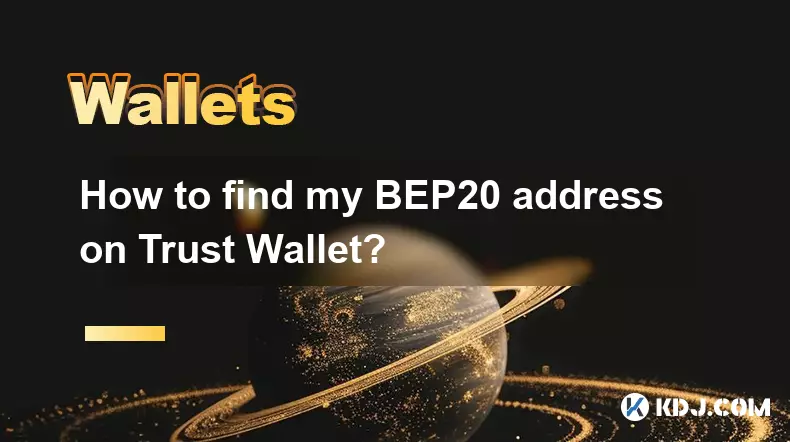
How to find my BEP20 address on Trust Wallet?
Oct 04,2025 at 06:19pm
Understanding BEP20 and Trust Wallet Compatibility1. Trust Wallet is a widely used cryptocurrency wallet that supports multiple blockchain networks, i...
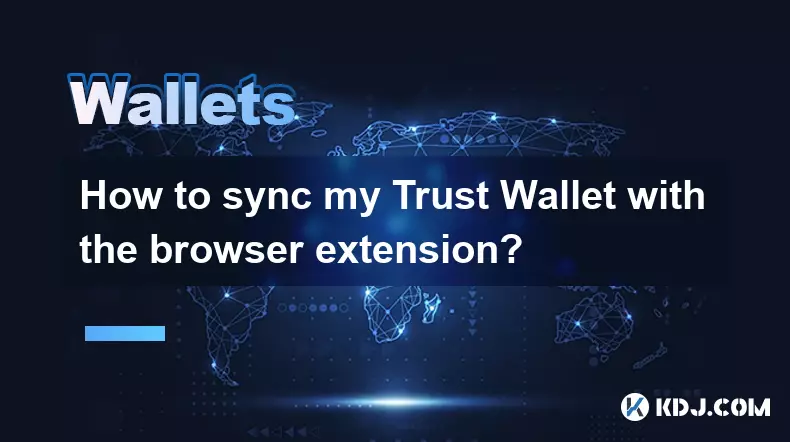
How to sync my Trust Wallet with the browser extension?
Oct 03,2025 at 06:19pm
Understanding Trust Wallet and Browser Extension IntegrationTrust Wallet is a popular non-custodial cryptocurrency wallet that supports a wide range o...
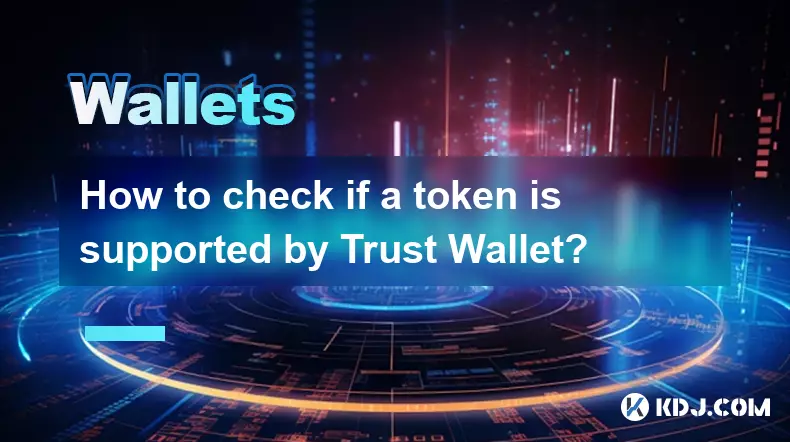
How to check if a token is supported by Trust Wallet?
Oct 04,2025 at 05:18am
Understanding Token Compatibility with Trust Wallet1. Trust Wallet supports a wide range of blockchain networks, including Ethereum, Binance Smart Cha...
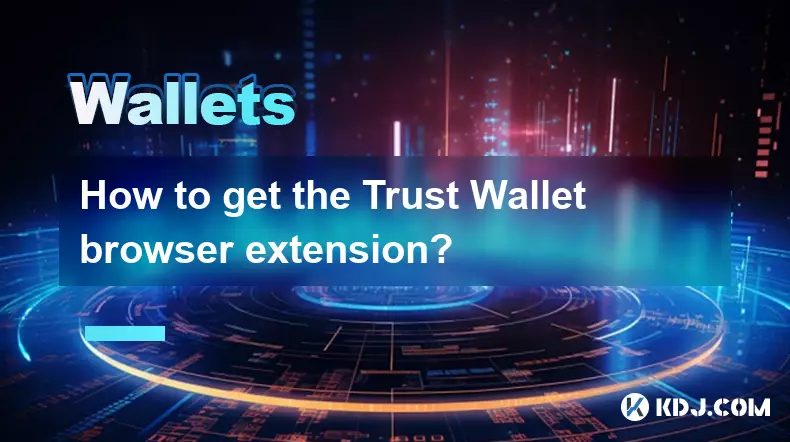
How to get the Trust Wallet browser extension?
Oct 01,2025 at 12:37am
How to Access the Trust Wallet Browser Extension1. Visit the official Trust Wallet website through a secure internet connection. Navigate to the downl...

How to interact with a DApp using Trust Wallet?
Oct 02,2025 at 10:00pm
Connecting Trust Wallet to a DApp1. Open the Trust Wallet app on your mobile device and ensure your wallet is unlocked with access to your assets. Nav...
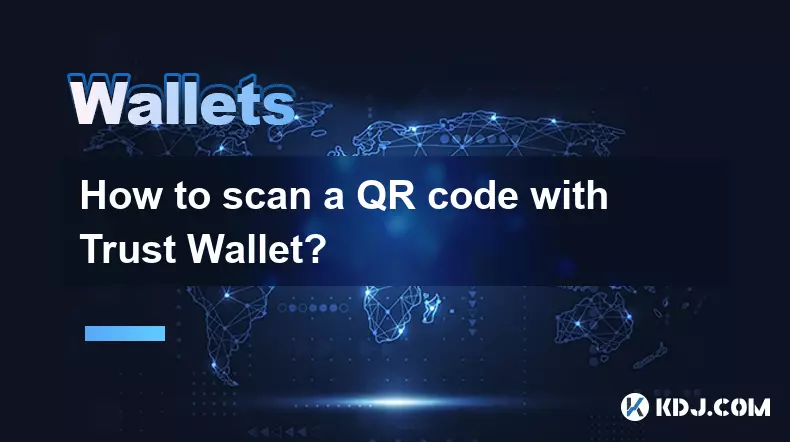
How to scan a QR code with Trust Wallet?
Oct 02,2025 at 03:37pm
Understanding QR Codes in Trust Wallet1. QR codes are widely used in cryptocurrency applications to simplify transaction processes. Trust Wallet lever...

How to find my BEP20 address on Trust Wallet?
Oct 04,2025 at 06:19pm
Understanding BEP20 and Trust Wallet Compatibility1. Trust Wallet is a widely used cryptocurrency wallet that supports multiple blockchain networks, i...

How to sync my Trust Wallet with the browser extension?
Oct 03,2025 at 06:19pm
Understanding Trust Wallet and Browser Extension IntegrationTrust Wallet is a popular non-custodial cryptocurrency wallet that supports a wide range o...

How to check if a token is supported by Trust Wallet?
Oct 04,2025 at 05:18am
Understanding Token Compatibility with Trust Wallet1. Trust Wallet supports a wide range of blockchain networks, including Ethereum, Binance Smart Cha...

How to get the Trust Wallet browser extension?
Oct 01,2025 at 12:37am
How to Access the Trust Wallet Browser Extension1. Visit the official Trust Wallet website through a secure internet connection. Navigate to the downl...

How to interact with a DApp using Trust Wallet?
Oct 02,2025 at 10:00pm
Connecting Trust Wallet to a DApp1. Open the Trust Wallet app on your mobile device and ensure your wallet is unlocked with access to your assets. Nav...

How to scan a QR code with Trust Wallet?
Oct 02,2025 at 03:37pm
Understanding QR Codes in Trust Wallet1. QR codes are widely used in cryptocurrency applications to simplify transaction processes. Trust Wallet lever...
See all articles

























